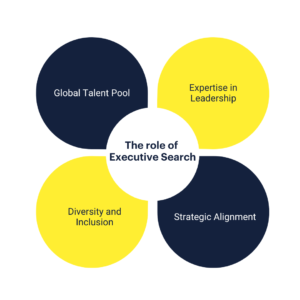Italy stands as the third-largest economy in the European Union, with a Gross Domestic Product (GDP) of approximately .05 trillion in 2023. It has a vast service sector which sustains its economy. Some of it´s strongest are finance, hospitality, retail, and professional services. Italy is one of the global leaders in manufacturing as well as industrial production of luxury automobiles, fashion, and high-end design. With these diverse industries in the economy, there is a constant and high demand for skilled executive talent.
Growing Demand for Executive Talent in Italy
As Italy continues to evolve within the global economy, the need for top-tier executive professionals remains high. Direct foreign investments have been rapidly increasing in the country and it external relations competition is become stiff facing several challenges. From bureaucratic challenges to foreign competition the country poses distinct difficulties.
Challenges in the Italian Executive Search Market
- Intense Talent Competition: Italy’s executive search market is highly competitive, with both domestic and international firms vying for top professionals. Many experienced Italian executives are being recruited by Swiss, German, UK, and US companies, leading to a growing brain drain.
- Impact of Nearshoring and Remote Work: The rise of nearshoring and remote work has increased the demand for bilingual talent with international business experience. Italian companies must compete with multinational firms offering flexible work conditions, which makes local hiring more challenging.
- Bureaucratic and Legal Barriers: Complex labor laws, high taxation, and bureaucratic processes make hiring talent more difficult for both local and foreign companies. Companies must navigate strict compliance regulations, requiring expertise in Italian labor policies.
- Rising Salaries and Retention Issues: Due to high demand for executive roles, salaries in industries such as technology, finance, and manufacturing have risen significantly. To attract and retain top talent, companies must offer competitive compensation, including stock options, flexible work arrangements, and leadership development programs.
- Cultural and Language Considerations: While English proficiency is increasing among professionals, many senior roles still require fluency in Italian. Cultural understanding is crucial, as business customs vary significantly between northern and southern Italy.
- Market Perception and Investment Climate: Italy has long been perceived as a market with bureaucratic challenges and economic instability. However, recent economic trends show stronger GDP growth and increased foreign investment, indicating a more resilient economy.
Executive Search Solutions in Italy
At Zavala Civitas, we have been operating in the Italian market for over a decade, specializing in executive search for industries such as finance, manufacturing, and technology. Our deep understanding of local and international talent acquisition allows us to identify and recruit high-caliber professionals.

If you are looking for executive search solutions in Italy, we invite you to explore our service methodology or contact us directly for tailored recruitment solutions here: Executive Search | Zavala Civitas Executive Search – Zavala Civitas






